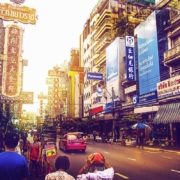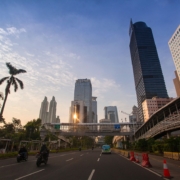What is the peacekeeping role of the United Nations?
Topic of Study [For H1/H2 History Students]:
Paper 1: Safeguarding International Peace and Security
Section B: Essay Writing
Theme III Chapter 2: Political Effectiveness of the UN in maintaining international peace and security
Saving succeeding generations from the scourge of war: The United Nations
On 24 October 1945, an inter-governmental organisation known as the United Nations was established. Barely a month ago, the Second World War came to an end, giving many a stark reminder of the devastation and atrocities that warmongers can cause on others.
Five decades later, the Department of Peace Operations (DPO) was set up, streamlining processes to carry out peacekeeping missions to achieve myriad goals set and authorised by the United Nations Security Council (UNSC).
Defining peacekeeping: Origins
The first peacekeeping mission took place in 1948 when the UNSC authorised the deployment of military observers to the Middle East. In particular, the United Nations Truce Supervision Organisation (UNTSO) was established in May 1948 to monitor ceasefires, supervise armistice agreements and prevent conflicts from threatening the security of Middle Eastern nations.
In its first manifestations in the United Nations, and indeed earlier, in the inter-war years, peacekeeping was strictly an inter-state activity. It had to do with the management of stressed or fractured relations between sovereign states in the international system. The United Nations Emergency Force sent to Suez in 1956 (which is often misleadingly described as the first peacekeeping operation) was interposed between Egypt and the states that had attacked it (Britain, France and Israel) following its nationalization of the Suez Canal. After Suez the essential principles of peacekeeping employed there were seen to apply as well to previous UN undertakings that had not, at the time they were established, been given the name peacekeeping.
An excerpt taken from “Peacekeeping and the International System” by Norrie MacQueen.
Notably, peacekeeping became a more ‘organised’ activity for the United Nations in 1956 when its principles were defined by then United Nations Secretary-General Dag Hammarskjöld and Canadian minister Lester B. Pearson. Its principles were put to the test when the United Nations Emergency Force (UNEF) was deployed in response to the Suez Canal Crisis of 1956.
Ever since 1948, more than 70 peacekeeping missions have been undertaken by the United Nations, involving more than 120 countries that contributed hundreds of thousands of personnel. Notably, the UN Operation in the Congo (ONUC) was first large-scale mission that numbered 20,000 of military personnel.
Evolution of peacekeeping
In the post-Cold War phase, the role of United Nations peacekeepers was re-defined to keep the organisation relevant. Initially, the ‘blue helmets’ took on a ‘traditional’ role, which included tasks like monitoring ceasefires. In view of the rise of new challenges posed by intra-state conflicts, peacekeepers took up new responsibilities, like providing humanitarian assistance, monitoring human rights, as well as disarmament and demobilisation of former combatants.
As Secretary-General Kofi Annan memorably described the new UN role in 1998: “Our job is to intervene: to prevent conflict where we can, to put a stop to it when it has broken out, or – when neither of those things is possible – at least to contain it and prevent it from spreading.” He was reflecting the activism of the Security Council, which between 1987 and 1994 had quadrupled the number of resolutions it issued, tripled the peacekeeping operations it authorized, and multiplied by seven the number of economic sanctions it imposed per year. Military forces deployed in peacekeeping operations increased from fewer than 10,000 to more than 70,000.
An excerpt taken from “Making War and Building Peace: United Nations Peace Operations” by Michael W. Doyle and Nicholas Sambanis.
What can we learn from this article?
Consider the following question:
– Assess the view that United Nations peacekeeping was successful ever since its inception.
Join our JC History Tuition to learn more about the United Nations. The H2 and H1 History Tuition feature online discussion and writing practices to enhance your knowledge application skills. Get useful study notes and clarify your doubts on the subject with the tutor. You can also follow our Telegram Channel to get useful updates.
We have other JC tuition classes, such as JC Math Tuition and JC Chemistry Tuition. For Secondary Tuition, we provide Secondary English Tuition, Secondary Math tuition, Secondary Chemistry Tuition, Social Studies Tuition, Geography, History Tuition and Secondary Economics Tuition. For Primary Tuition, we have Primary English, Math and Science Tuition. Call 9658 5789 to find out more.



